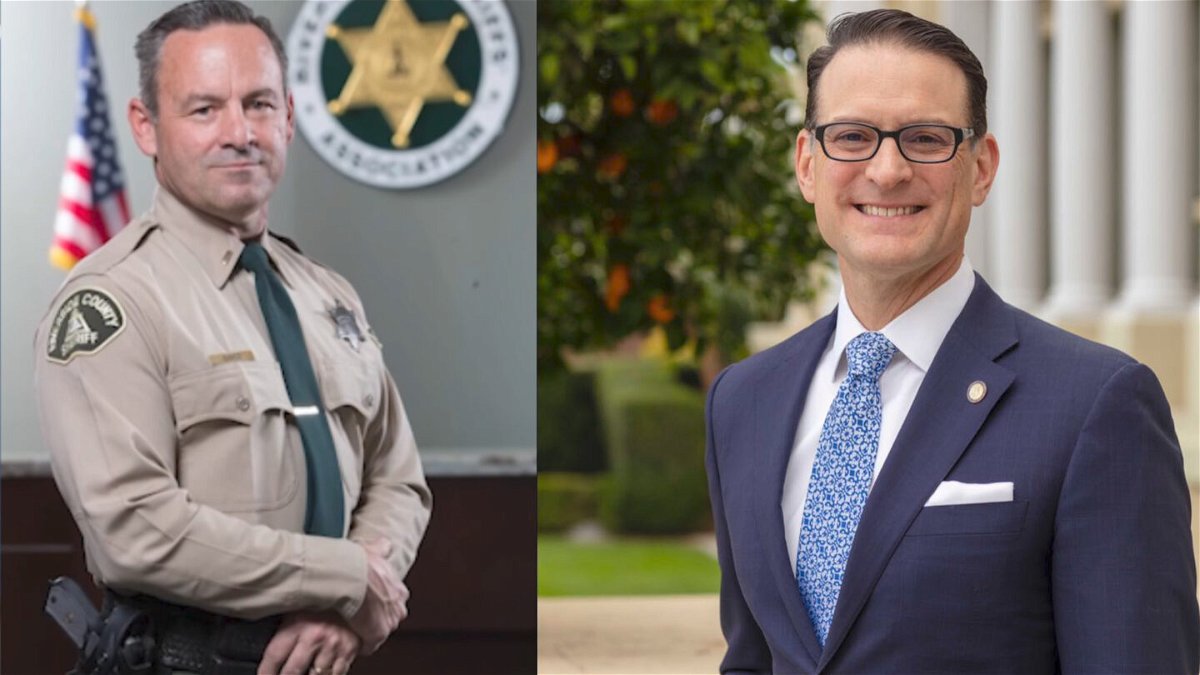Hestrin, Bianco, and other law enforcement officials to call for changes in state law for public safety

Riverside County District Attorney Mike Hestrin, Sheriff Chad Bianco and other law enforcement officials will gather tomorrow to call for changes in state law to bolster public safety, mainly by undoing the effects of a decade-old legislative act that shifted many former state responsibilities onto counties.
The officials will specifically address ongoing impacts of Assembly Bill 109, the Public Safety Realignment Act of 2011, during a briefing at the DA's headquarters on Orange Street in downtown Riverside.
According to local officials, it's time to question the justification for the law, given that former Gov. Jerry Brown's rationale for signing it in April 2011 -- to reduce prison overcrowding -- no longer appears valid.
"Since then, the state prison population has decreased so much that in December, the California Department of Corrections & Rehabilitation announced that within the next two years, it would close the Chuckawalla State Prison, exit the lease for California City Correctional Facility and deactivate facilities in six other prisons,'' according to a DA's Office statement. "This follows the closure of Duel Vocational Institution in 2021."
Hestrin and the others are expected to further highlight how changes in sentencing guidelines built into AB 109, with a strong bent toward probation over incarceration, have impacted communities, counties' correctional facilities and recidivism rates.
AB 109 went into effect in October 2011 as part of Brown's broad program to retool state government in his first term. Although some regional officials supported the program, including then-Riverside County Supervisor John Tavaglione, serving as president of the California State Association of Counties, they later became skeptical or outright opponents.
"The governor's plan, however well-intentioned, presents many difficulties for all of the partners in the criminal justice system," according to a 2012 county Department of Probation report presented to the Board of Supervisors. "Moreover, the ramifications ... and the impact on the citizens of Riverside County are difficult to predict."
In the years that followed, probation officials, sheriff's officials, area police chiefs and local representatives generally came to the same conclusion -- AB 109's costs outweighed any benefits.
Among the challenges was the placement of many functions previously carried out by state parole agents onto counties' probation officers.
The law established different categories of probation, including post-release community supervision, and alternatives in lieu of jail, such as "mandatory supervision," requiring local probation agents to bear heavier loads.
So-called low-level offenders, including parole violators, were also required to serve their time behind bars in local detention facilities instead of state penitentiaries. AB 109 established a de facto "3N" category for local lockups -- ``non-violent, non-serious and non-sexually oriented'' in their criminal conduct.
Further straining local correctional resources was voter-approved Proposition 47 in 2014, which altered sentencing guidelines, making "non-serious" drug and property crimes misdemeanors instead of felonies. The new law also mandated re-sentencing individuals convicted of various felony drug and property crimes, enabling some to get out of prison and return to the communities where they offended.
Over the last decade, AB 109 offenders have consistently taken up a third or more of the space in the county's five jails. Sheriff's officials have released tens of thousands of inmates before they completed their sentences or had their cases adjudicated due to realignment-related overcrowding. A federal court decree requires the sheriff to have a bed for every inmate or free detainees to make room for incoming ones.
"With the increase of AB 109 realignment inmates, the sheriff's department has seen a continued increase of inmates requiring treatment for a serious mental illness,'' according to the October 2017 Public Safety Realignment & Post-Release Community Supervision Implementation Report to the board.
Shortfalls in funding for the state-mandated program have been a frequent point of contention among counties, which have to plug any gaps with local revenue when the state doesn't come through.
